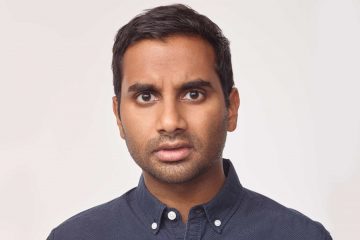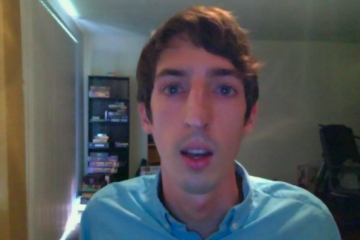3 Awkward Responses People Have When You Mention Your Eating Disorder
By Katie Barbaro
May is Mental Health Awareness Month—AKA a great excuse to write a light-hearted article about my eating disorder. Let’s dive into the heavy background-y stuff first, shall we?
I’ve had an unhealthy relationship with food for as long as I can remember.
When I was 8, I found out what calories were from a diet book in the bathroom drawer. I remember reading: “You might not be able to tell the difference between a medium peach and a large peach, but your hips will.”
Terrifying.
I fantasized about becoming an adult and getting super skinny by only eating cucumbers (which had the LEAST amount of calories of all the foods). My food and body obsession progressed as I got older, but I wasn’t willing to believe that I had an eating disorder.
It was more like I wanted to have an eating disorder. (Fact check: This is the same if not worse because of the hot steaming pile of denial that went along with it.) I didn’t think I qualified with my obsessive food and exercise behaviors—like only eating Greek yogurt and apples during the day, binging on anything I could find in my pantry after my roommates were asleep, and then running 10 miles the next morning to “even everything out.” Food and exercise were a mathematical equation constantly running through my mind. I just assumed that was what it was like for everyone.
Food and exercise were a mathematical equation constantly running through my mind. I assumed it was like that inside everyone’s mind. It wasn’t until I started throwing up after binging that I finally noticed a red flag—“Hey, I do have a real eating disorder! Let’s get some help.”
Fast forward through a whole lot of help getting (which I won’t go into detail about right now, but I’m happy to share with anyone who wants to know). I’m finally at a point in my recovery where I feel comfortable talking about my experience (duh, I’m writing about it RIGHT NOW). Of course, I’m tempted to pretend like I never had this disease and like everything in my life is perfect and blah, blah, blah, but that doesn’t do anyone any good. One of the most debilitating parts of this disease is the fear and shame around talking about it.
So now I talk about it all the time! Take that, fear and shame!
That being said, I realize people don’t always know how to respond when you casually drop the “eating disorder” bomb. Here are some fun responses I’ve heard:
1.) “Wait, you said you were bulimic but you haven’t lost any weight.” – An actual Doctor.
This is a direct quote from my doctor at my annual physical about 10 minutes after I told her I’d been struggling with bulimia. Not, “I’ll make a referral for you to get some help.” She went straight to “You must have been doing it wrong. ALL I KNOW ABOUT EATING DISORDERS IS THEY’RE SUPPOSED TO MAKE PEOPLE VERY SKINNY AND YOUR BMI IS ON THE HIGH END OF NORMAL SO I’M NOT WORRIED ABOUT YOU. YOU MIGHT THINK YOU HAVE AN EATING DISORDER BUT YOU DON’T.” Did you just gaslight me, Dr. Quema?! (#namenames) Excuse me while I retreat into my shame bubble.
2.) “You don’t look like you have an eating disorder.”
Ahhh, such a well-meaning, backhanded compliment. My first disease-minded response is “Fuck you, sir. I WORK HARD TO LOOK LIKE I HAVE AN EATING DISORDER.” But I get it—I’m not scary-skinny. I’m technically at a healthy body weight. This is how I convinced myself for so long that I didn’t qualify as having an eating disorder, so I also didn’t need to seek help. Part of my disease is that I try to make it seem like everything is perfect, but on the inside, I’m losing my mind trying to control all my inputs and my outputs and mistakenly believing that my insane calculations are actually holding my life together.
3.) “It seems like you stopped at a good time.”
What a sweet thought! Like an eating disorder is just a diet and you can magically stop once you hit your goal weight. That’s the DREAM.
But no one decides to become bulimic and you can’t really decide to stop.
You think you’re deciding because it’s a disorder in your mind, so it’s hard to separate your disease from yourself. That was the trickiest part! For a long time, I thought I could cure myself (Spoiler alert: I couldn’t). I’d make myself reward charts where I’d get a sticker every day I didn’t throw up. Adorable, but ineffective.
I know what you’re thinking—“Great! Now we know what not to say, but how do you respond when someone tells you about their eating disorder?” Excellent question. I’m not going to pretend like I have a good answer for this other than to be open minded and supportive. It gets better when you ask for help.







